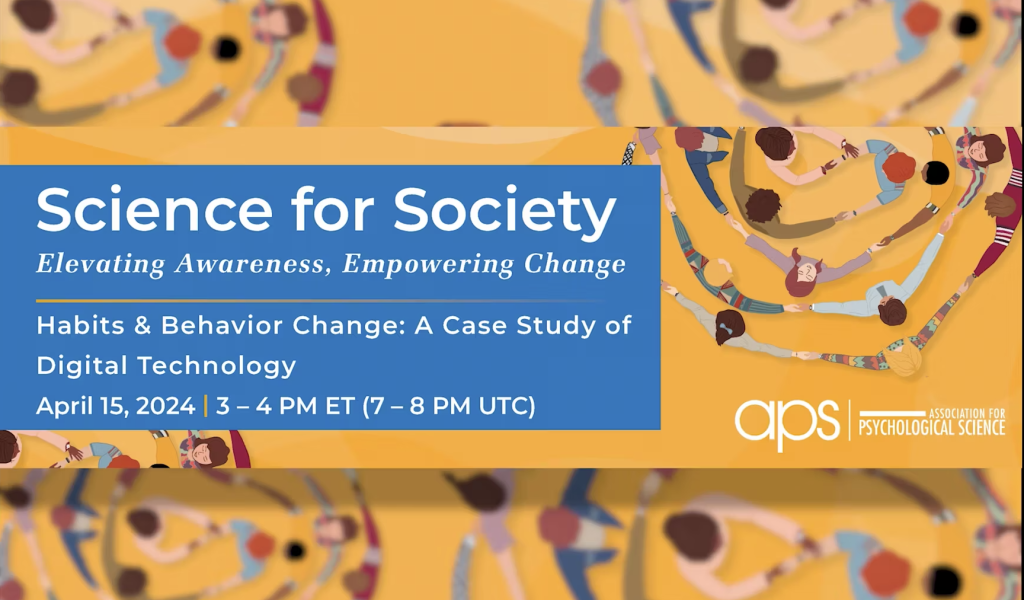Tackling the Force of Habit

How much of our behavior is habitual? APS President Wendy Wood and her colleagues answered this question on April 16 during “Habits and Behavior Change—A Case Study of Digital Technology,” an APS Science for Society webinar.
In a study in which some participants had strong habits involving drinking particular sugared beverages and others didn’t, Wood and her colleagues tested the behavior change in sugared beverage consumption and found that persuasive messages were not successful at changing habitual behavior (Itzchakov, Uziel, & Wood, 2017). Through her review of the literature, Wood, provost professor of psychology and business at the University of Southern California, indicated that habits cannot be changed easily by changing beliefs, attitudes, and emotions. What works instead is carefully designed interventions that directly target behavior.
Wood pointed to public health initiatives that succeeded in convincing people about the health risks of specific habits but did not lead them to change those habits. She touted the strength of interventions, rather than mere messaging, as a catalyst for change. An example of behavioral influences, she said, include anti-smoking initiatives that use smoking bans, prohibitions on tobacco advertising, and other policies to remove the cues that trigger an individual’s cigarette habit. In the digital realm, Wood’s own work indicates that updates in Facebook cues—including additional buttons or the removal of single-click sharing—can disrupt habitual posting that allows misinformation to spread across the internet.
Joining Wood in the webinar were social psychologist and habit researcher Benjamin Gardner (University of Surrey), and communications researcher Anna Schnauber-Stockmann (University of Mainz). Gardner made a distinction between habitually instigated and habitually executed behavior as he explained the mechanisms behind digital technology behaviors. Schnauber-Stockmann emphasized the role of stable contexts and intrinsic rewards in habit formation. The panelists agreed that behavior-change interventions should, rather than focusing on persuasive messaging, target the cues for the habit in question.
A full recording of the webinar is available for registrants and APS members.




APS regularly opens certain online articles for discussion on our website. Effective February 2021, you must be a logged-in APS member to post comments. By posting a comment, you agree to our Community Guidelines and the display of your profile information, including your name and affiliation. Any opinions, findings, conclusions, or recommendations present in article comments are those of the writers and do not necessarily reflect the views of APS or the article’s author. For more information, please see our Community Guidelines.
Please login with your APS account to comment.